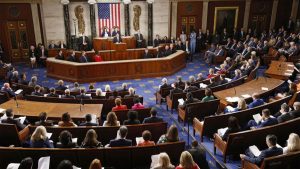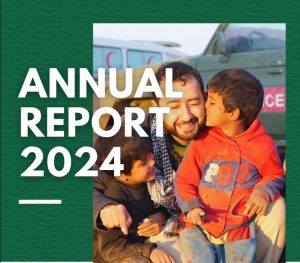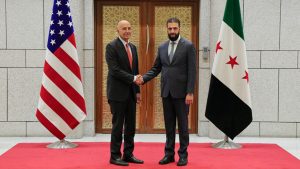Written By Mouaz Moustafa
The Biden administration will soon have to address the situation in Syria, and there is little doubt that Idlib will be one of the first tests the White House faces in this decade-long conflict. For several reasons, the resolution of the Syrian war hinges on protecting Idlib. Retaking Idlib would enable the regime of Syrian despot Bashar al-Assad to declare a complete military victory, annihilate any chance for a negotiated settlement or return of refugees, and impede international efforts to hold the regime accountable for its atrocities. Millions of civilians, including 1 million children[1], are trapped within an ever-shrinking space surrounded by the Assad regime and Russian and Iranian-backed forces, including Hezbollah. The regime and its allies are determined to displace, kill, or detain Idlib’s population, including over 2 million internally displaced persons[2]. The scale of previous, ongoing, and potential atrocities in Idlib constitutes one of the 21st century’s worst crimes against humanity.
Beyond the humanitarian stakes, the crisis in Idlib threatens the interests of the United States and its allies. First, an Assad-Russian-Iranian offensive could double the number of refugees in Europe as a new flood of civilians flees the violence. Second, this offensive will serve to empower extremist elements in Syria and beyond. Violent extremist organizations use the international community’s inaction in the face of mass atrocities in Idlib to feed their propaganda and recruitment efforts. Third, Idlib distracts the regime and its allies from focusing on northeast Syria, where U.S. troops are continuing the fight against the Islamic State, or ISIS. Retaking Idlib would enable Assad and his backers to refocus their efforts on pushing the United States out of Syria, potentially imperiling U.S. troops and their local coalition partners and enabling an ISIS resurgence.
Today, a tentative ceasefire in Idlib teeters on the verge of collapse. This ceasefire was established mostly thanks to NATO ally Turkey, whose military intervention in Idlib early last year stopped an unfolding humanitarian disaster. In contrast to its destabilizing actions in northeast Syria, Turkey’s opposition to a further regime offensive aligns with U.S. and European interests. At minimal cost and without a direct U.S. military intervention or deployment, the United States can work with its European allies and Turkey toward the common goal of resolving the Idlib crisis and avoiding a humanitarian and national security disaster. The United States must lead in coordinating a multi-pronged strategy that incorporates diplomatic, economic, and military pressure to protect civilians in Idlib. The United States and its allies must establish a zero-tolerance policy on violence against civilians in Idlib. Washington should leverage the Caesar Syria Civilian Protection Act and other targeted sanctions to deprive Assad’s war machine of resources. The United States must engage directly with Turkey to support its military efforts to counter the military operations of Assad-Russia-Iran in Idlib.









